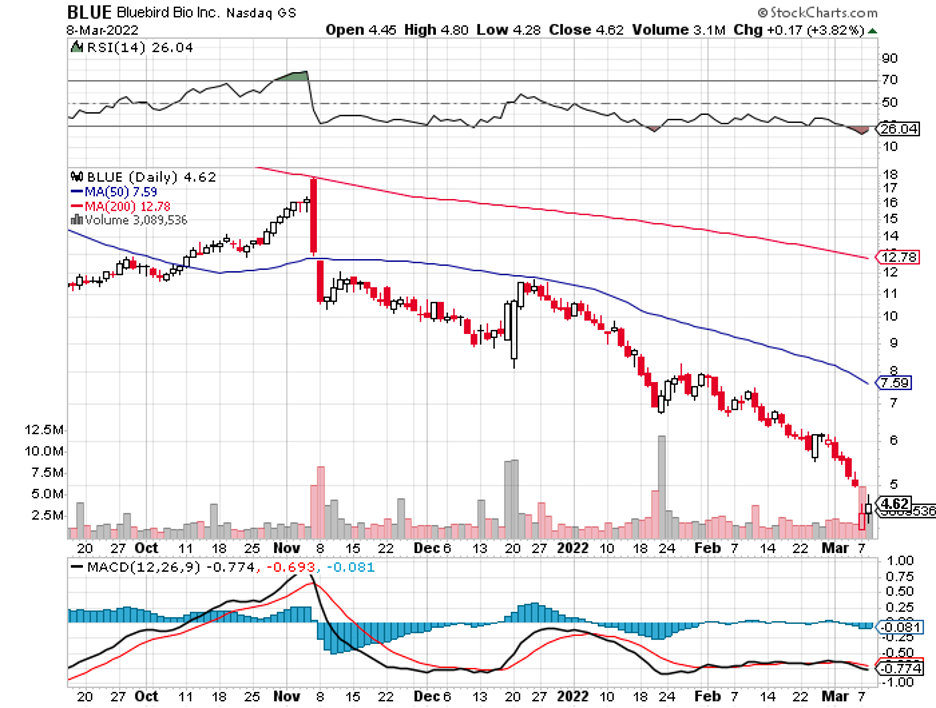Could This Be the Next Biotech Buyout Candidate?
What is the common denominator of giant drugmakers AstraZeneca (AZN), AbbVie (ABBV), and Bristol Myers Squibb (BMY)?
Aside from being three of the biggest healthcare companies across the globe, all three have also completed high-profile acquisitions amid the pandemic.
AstraZeneca acquired Alexion Pharmaceuticals for $39 billion in December 2020.
Meanwhile, AbbVie wrapped up its whopping $63 billion acquisition of Allergan in May 2020.
As for BMY, this biopharma titan followed its jaw-dropping $74 billion acquisition of Celgene with a $13 billion merger with MyoKordia.
Since then, these deals have bolstered the lineups and deepened the pipelines of all three drugmakers, helping them secure their dominance in the healthcare space.
As for the acquirees, they also benefited from the transactions, particularly those struggling to get through tough situations prior to getting bought out.
With that in mind, it looks like the biotechnology and healthcare sector has another potential high-profile acquisition candidate: Bluebird Bio (BLUE).
Bluebird Bio has recently fallen from investors’ grace following multiple setbacks.
The biotechnology company, once considered a trail-blazer in the gene therapy space, now finds itself without a CFO and left behind by competitors.
Its peers, who were initially eons away in terms of pipeline development, have figured out ways to work around Bluebird’s patents and even managed to outpace the company in launching new gene therapies to market.
Given all these factors, it is no surprise that investing in Bluebird bio has become synonymous with a recycler searching for value in random scraps and parts.
Over the last three years, Bluebird Bio’s shares have plummeted by more than 90%. From a $1.39 billion market capitalization, it is now at roughly $330 million.
That is a horrible performance based on any metric.
Bluebird bio has faced several headwinds that caused its stocks to fall apart.
One problem is the delay in the company’s Biologics License Application in the US for its transfusion-dependent beta-thalassemia treatment, LentiGlobin.
Bluebird Bio initially planned to complete this rare blood disorder therapy’s application by the second half of 2020. However, the company failed to submit some information requested by the FDA.
Another LentiGlobin-related issue is the temporary pause on the clinical trial for sickle cell disease treatment. Eventually, the suspension was lifted, but not before investors scurried away from the stock, following back-to-back concerns over the same treatment.
Other aggravating factors include Bluebird’s move to exit the European market following disagreements over the pricing of some of its gene therapies.
These issues saw Bluebird’s market cap sink, positioning it lower than rival gene-editing companies today.
Needless to say, this deeply discounted value could attract a bigger and expanding biopharma seeking to dip its toes in the gene-editing space.
While Bluebird might be struggling these days, it remains a promising company thanks to its candidates.
This becomes even more exciting since the company announced its plans to concentrate on severe genetic diseases. Although this is a small niche, there’s massive potential in this market.
A strong candidate in its roster is Zynteglo, which gained regulatory approval in 2019 and has yet to reach blockbuster status.
Patients with beta-thalassaemia normally have no other choice but to get blood transfusions regularly. Zynteglo drastically challenges this standard by offering a one-time curative treatment. In fact, saying that this is a life-changing breakthrough is an understatement.
Another potential blockbuster is Skysona, a treatment for a pediatric neurodegenerative disorder called cerebral adrenoleukodystrophy. This neurological disease is extremely rare, affecting only 50 patients in the US annually.
As for its pipeline, Bluebird has three major candidates nearing FDA approval in the US. This means 2022 and 2023 will be critical years for the company.
The first product is Lenti-D, which is similar to Skysona. If things go according to plan, then this treatment might receive the green light by August 2022.
Another product is Beti-cel, which was initially launched as Zynteglo. When this successfully penetrates the US market, this first-ever gene therapy option for beta-thalassemia will rake in roughly $1.87 billion by 2024.
Considering the potential of this market, Beti-cel inevitably finds itself facing off strong competitors in the space.
Thus far, the strongest is Vertex Pharmaceuticals (VRTX), which recently announced an additional $900 million investment in its collaboration with CRISPR Therapeutics (CRSP).
The third candidate is Lovo-cel, which is a sickle cell disease treatment.
This could be a major product for Bluebird, given the over 100,000 patients in the US alone that the company can target.
The goal is to finish the validation process by 2022 and submit Lovo-cel for approval by the first quarter of 2023.
Outside its pipeline candidates and approved products, Bluebird's manageable debt is another thing that makes it attractive for a potential buyout.
After all, cash is king, especially when it comes to biotechnology companies.
At the moment, Bluebird still holds roughly $442 million in the bank, and $46 million of this is restricted.
This indicates unrestricted liquid assets of approximately $396 million—an amount higher than its current market cap.
Consequently, this will allow Bluebird to comfortably weather at least the rest of the year until 2023.
It possesses a relatively solid secure position to hold itself together until its pending candidates start raking in revenues on their own.
Admittedly, Bluebird Bio has had several challenging years. There will still be uncertainties ahead, but it’s undeniable just how promising the company is at this point.
Overall, this stock is worth serious consideration, particularly for companies looking to get a head start in the gene-editing sector.

